‘I love him, he’s my everything’: Jay dotes on his dog, but can Noodle love him back?
THEY follow us around, jump up on us and love to snuggle up. But is the affection our dogs show us real — or are they master manipulators?
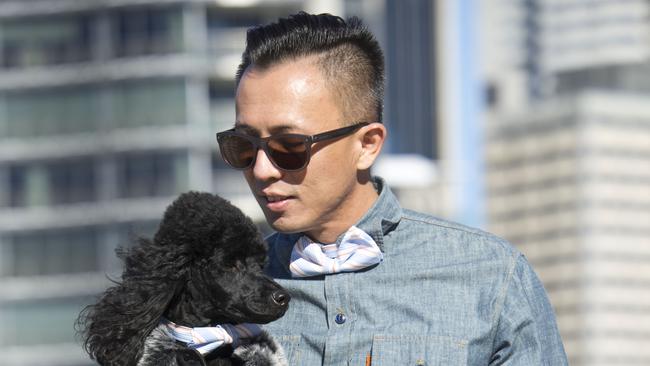
FASHION entrepreneur Jay Lee dotes on his poodle.
Like many dog owners, the Sydney businessman believes his pet has “unconditional love” for him: “He shows me that every day.”
When Jay went through a break-up and the most difficult time of his life, Noodle was by side.
But neuroscientists say our pets are manipulative, and their apparent affection for us is based on a survivalist instinct.
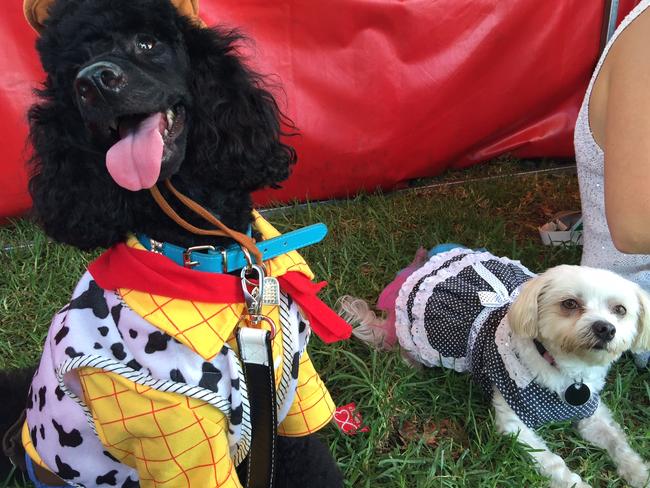
Brad Smith, a cognitive psychologist and research fellow at Central Queensland University, looks at wild and domestic dogs, comparing dingos and wolves with our pets.
He says our dogs have lost their natural problem-solving abilities and instead rely on appeasing humans to get what they want. “Dogs are good at following cues,” Dr Smith told news.com.au. “We’ve bred them to be like children, so dogs are like wolf puppies — we’ve selected for puppy-dog eyes, floppy ears and barking. Wolves only bark when they are children.”
But many dog-owners believe they can recognise when their pets feel happiness, sadness and anxiety, and when they react to their own emotional state.
Jay insists he and Noodle, who models for his Runway Pooch brand, have a special bond. “When I just put the key in the door I hear paws going ‘click, click, click’,” he said. “He’ll jump up and down and try to kiss me.”
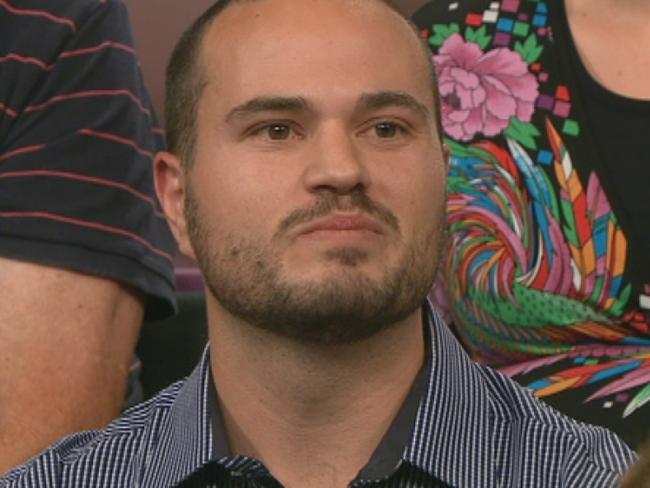
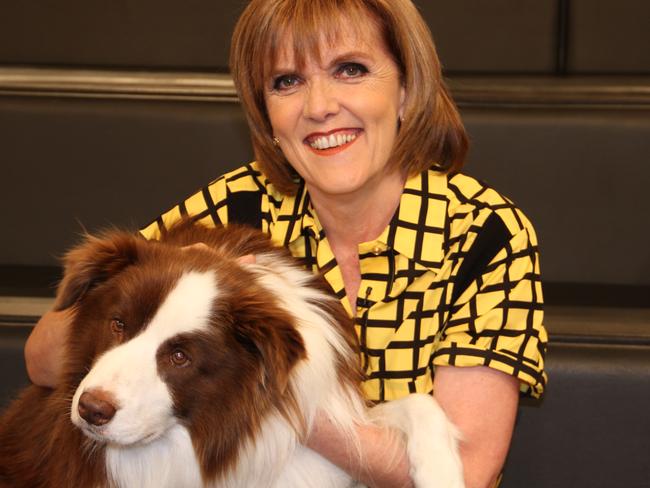
When the 35-year-old pet stylist travels, he Skypes with his dog. “He could recognise me and my voice from the other end of Skype. He gets excited and tilts his head, sort of twists his head so you know he’s listening,” Jay said.
His main source of irritation is that he can’t take Noodle on public transport, into shops or even in an Uber taxi without calling to ask permission. He points to dog restaurants in Japan, where pets and owners can eat together, and the fact that in the US, you can take your dog into a plane cabin.
But Dr Smith, who appears alongside other behaviourists and dog-lovers on SBS’s Insight: Puppy Love tonight, said: “We are highly anthropomorphic, especially with dogs, because they are so social and similar to humans in the way we get along and behave.
“They can read our emotions and subtle cues, when we’re sad, or angry, they can take advantage, and get what they want from us.
“Most successful domestic species are survivalists. They’ve worked out how they can best survive and that’s by being our buddies.”
Some people believe that when they shame their dogs, their pets feel guilt, but Dr Smith says dogs probably don’t have a concept of guilt, or care enough, but instead are fearful of repercussions because their owner appears angry.
The truth is, even the experts don’t know a huge amount about how dogs’ brains work. “Dogs are really good at reading and understanding us but we aren’t so good at reading them,” said Dr Smith, adding that more research could be enormously useful when it comes to animal welfare and behavioural problems like dog attacks.
While most experts agree with Dr Smith, Emory University neuroscientist Gregory Burns performs brain scans on dogs and thinks his results show that they have genuine emotional responses, which he thinks resemble love.
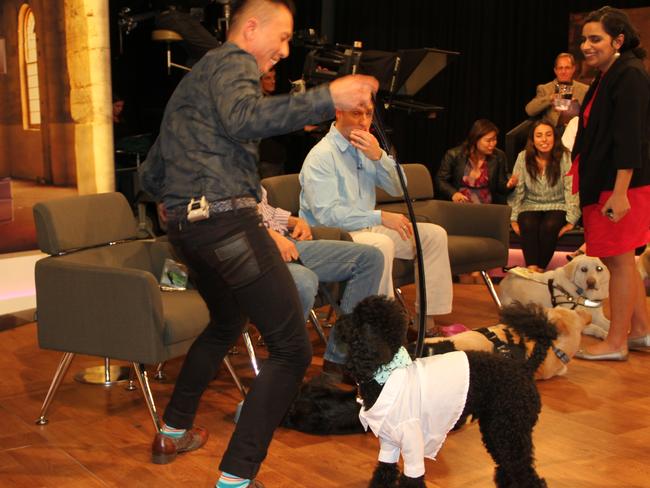
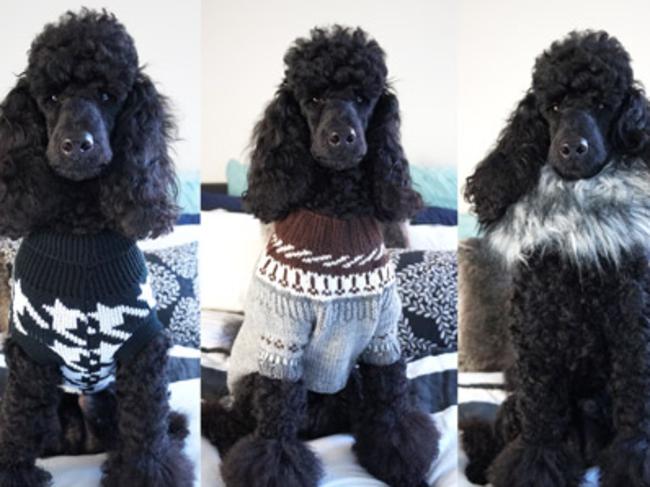
Animal psychologists generally think dogs have the emotional and cognitive intelligence of a two-year-old, and Dr Smith agrees that they can feel anxious, happy and sad.MRI scans have shown dogs’ brains are activated when they see us in a way that shows they are happy.
But he added: “Just because the neuromechanisms exist, doesn’t mean they can process emotions in the same way as we do. We have the capacity to reflect.”
Dr Smith doesn’t see a major difficulty in us believing our dogs love us. They probably do care about us, although we may be guilty of projecting our feelings on to them. His only concern is the differences between how we treat our pets and how we treat wild, free-ranging dogs. “We tend to have fuzzy thoughts about our pets but forget to think about feral animals. Why would a domestic dog feel any different to a wild one?”
For Jay, it doesn’t seem to really matter. He knows that he is the one who gets separation anxiety, but three-year-old Noodle is like a son to him. “I’m a self-proclaimed crazy dog guy,” he said. “I cherish every moment of our life together. I wish I could take him everywhere.
“He sleeps on my bed, it’s so nice to have a cuddle with him in the morning.”
And he’s philosophical about the poodle’s lifespan. “Even in human relationships you never know what will happen. Every single moment is precious.”
Watch Insight: Puppy Love tonight at 8:30pm on SBS ONE. Find out more here.



